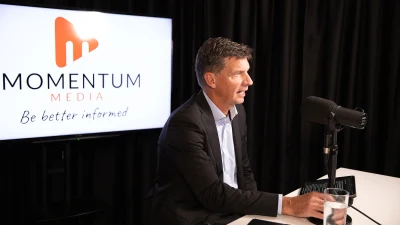Pigeon-hole at your own peril
Fund managers are commonly pigeon-holed as either value managers or growth managers. Rob Keavney believes this approach, borrowed from our American cousins, is both facile and dangerous.
Advisers are interested in understanding manager style in an attempt to assess who is 'true to label', and in order to construct portfolios with a mix of manager styles.
To do this effectively we need to recognise the complex matrix of issues that determines a fund manager's style. A one-dimensional value versus growth paradigm is far too simplistic.
I recall the 1980s when managers were classified as either top down or bottom up. This criterion is certainly as useful as value versus growth.
At the risk of generalising, top down managers believe they add value by understanding economic trends and market conditions, which guides their decisions about whether to be fully invested in stocks and which stocks to purchase, or whether to cash up. Top down managers, therefore, tend to take a view on market timing.
Bottom up managers tend to argue that there is little evidence that anyone makes these market calls accurately, and the most consistent way they can produce superior returns is in the selection of quality stocks that will perform better over time, irrespective of market cycles. Bottom up managers are often referred to as 'stock-pickers'.
Colonial First State could be considered a classic bottom up manager. Although I am not sure they would feel comfortable with this characterisation, in my view, BT has a track record of reasonably successful top down decisions, including their reputation-making call prior to the stock market crash of 1987.
Understanding how managers differ in this respect is quite material in forming an expectation of their future performance. For example, it would be inappropriate to criticise Colonial First State if they remain fully invested through a market crash. They are not trying to predict crashes.
Another material difference in management style is willingness to move to cash.
Many managers are avowedly committed to being fully invested. Fidelity is a classic example of this. Others are prepared to move out of equities and into cash, even within their share funds. Maple-Brown Abbott is a manager who is prepared to see cash levels fluctuate. In fact, Robert Maple-Brown likes to keep a little cash on hand most of the time.
The Investors Mutual World Wide Strategy Fund is an extreme case of this, with less than half its assets invested in stocks for most of 2000 - although in the long term it views itself primarily as an equity trust.
Being willing or not willing to use cash as a defensive element in a fund is a material difference in management style that does not correlate with a value/growth paradigm.
If advisers wish to understand how various managers operate in order to obtain a real diversification of management style, then the approach of different funds to the use of synthetics (or derivatives) is a useful variable.
Many managers will rarely or never use synthetics. Colonial First State, Advance Bank/Robert Maple-Brown and Tyndall are in this group.
Others will use synthetics but only to hedge physical exposure. This can occur where a manager may short a stock to lighten its exposure, without transaction or capital gains tax consequences.
The philosophy here is that synthetics are a cheaper way of reducing portfolio risk. There is, however, no attempt to make a profit through the use of these instruments, merely to avoid a loss that might otherwise occur.
Other managers will go further. They are prepared to try to make a profit through the use of synthetics either by increasing their exposure to a market above the level that could be obtained by physical exposure, or by profiting from declines.
It goes without saying that this approach increases both risk and return potential. I recall that certain Jardine Fleming funds were more than 100 per cent invested in stocks through the crash of 1987, which highlights the risks in this strategy.
Platinum Funds Manage-ment, which has certainly been one of the outstanding international stock market investors of recent years, is prepared to use synthetics in this way. By contrast, the MLC MasterKey Platinum Global Fund has a mandate that restricts the use of synthetics to defensive purposes.
This will mean that, at times, these two investments, managed by Platinum, will differ in their performance characteristics. This certainly highlights that a division of managers into value or growth is not sophisticated enough to distinguish all differences in style.
One area in which the use of synthetics is very material is in currency hedging of international funds. There is actually an inadequate range of options in retail international equity trusts available in Australia in this respect. Nonetheless, differences still apply.
In the US, investors can choose from international funds that:
* Never hedge, ie. they buy offshore equities without taking a view on currencies;
* Fully hedge, ie. they buy overseas equities and completely eliminate currency movements from returns (some Vanguard funds do this in Australia);
* Always have their currency exposure protected by options, ie. they remove all downside currency risk and retain all upside potential, but pay a constant premium for this (certain Invesco funds are in this category); and
* Hedge when they feel it is appropriate (which is the position of most retail funds in Australia today).
Even in this last category, there can be differences. For example, those funds that can hedge their currency exposure defensively back into the Australian dollar or those that will hedge aggressively out of currency A into currency B, which they believe will prove stronger.
The MSCI World Index has diverged materially from the MSCI Hedged World Index in recent years (eg. outperforming by 59 per cent from 31/3/97 to 31/7/98, and underperforming by 34 per cent from 31/7/98 to 30/11/99). This is a very significant element in investment return (see graph).
Funds differ materially in their predisposition to buy certain kinds of stocks. The Perpetual Industrial Share Fund, consistent with its name and aim, will buy no resource stocks. At times, this will lead it to significantly outperform or underperform the All Ordinaries Index. This has nothing to do with whether it is a value manager.
Other funds have a predisposition to buy small cap stocks while others favour large or liquid stocks. For example, Tyndall and Advance favour liquidity while Mercantile Mutual generally has an above-average exposure to small caps in the belief that their higher volatility is compensated for by higher returns.
Other managers construct their portfolios by only allowing a given degree of variation from index exposure, naturally causing a bias to large cap stocks, while others are indifferent to index weightings.
The importance of this element of manager style is highlighted by the fact that small company funds, whether value or growth oriented, often highly correlate in performance.
Finally, some managers will limit their investment to companies that they consider good quality, while others will buy shares in a poor business. Perpetual is an example of the former, applying quality filters in assessing a stock. Warren Buffet would be the best known example of the view that all one needs to do is buy a good company and be patient.
Platinum takes a different approach. I recall an occasion, in the mid-1990s, when it invested in an American airline. Kerr Neilson expressed the view that it was a poor company in a poor industry, but not nearly as lousy as its price would imply. Thus he felt there was good value in a bad company.
The other problem with the view that it is meaningful to categorise managers as either value or growth is that these terms are really quite undefined.
The Rothschild Australian Equity Trust and the Advance Imputation Fund would both describe themselves as value managers. During 1999, value stocks allegedly performed badly. Over this time, the All Ords produced 16.1 per cent, Advance produced 12.8 per cent and Rothschild 20.6 per cent.
Forgive me if I am confused in understanding how Rothschild and Advance are the same type of manager. Certainly I would reject the view that this divergence in performance is because Advance is a bad example of a value manager as their long-term track record is so strong.
When one asks what it is that is supposed to distinguish value from growth managers, the answer usually consists of statements about PEs. One could be tempted to think that value managers buy the biggest PEs they can, and growth managers buy the smallest PEs they can.
Clearly, both these descriptions are too simplistic. Both types of managers think they are buying shares that will produce the best returns possible for funds invested. This must involve a belief that they are getting good value for their money and must involve a belief that their stock prices are likely to grow.
So, although the two styles do differ, particularly in their attraction for immediate cash yield, value and growth, are not mutually exclusive terms.
Managers vary on a complex matrix of criteria. Value versus growth is only one of them. This means that it takes some time to really understand differences in management style. The complexity of this makes it possible to create portfolios using funds that really differ in their approach to investing.
Unfortunately, in recent years in Australia, we have started to adopt the facile view that there are only two kinds of managers, value or growth, and that characterising funds as one or the other, or somewhere in between, is all we need to know in portfolio construction. This is a simplistic view, and therefore one that runs the risk of causing unpleasant surprises for us and our clients.
Recommended for you
In this episode of Relative Return, host Laura Dew speaks with Russel Pillemer, chief executive of Pengana Capital Group, to discuss the opportunities in global private credit in this market environment.
In this episode of Relative Return, host Laura Dew speaks with Steve Johnson, founder and CIO at Forager Funds Management, about the impact of human psychology on investing and whether fund managers can ever beat algorithms.
In this episode of Relative Return, host Laura Dew speaks with Daniel Bower, chief product officer at FinClear, and Bill Keogh, chief executive of Transact1 (a FinClear subsidiary) to discuss cash as an asset class.
In this episode of Relative Return, host Maja Garaca Djurdjevic is joined by shadow treasurer Angus Taylor to discuss the current state of the financial advice sector, the economy, the housing affordability crisis and more.












